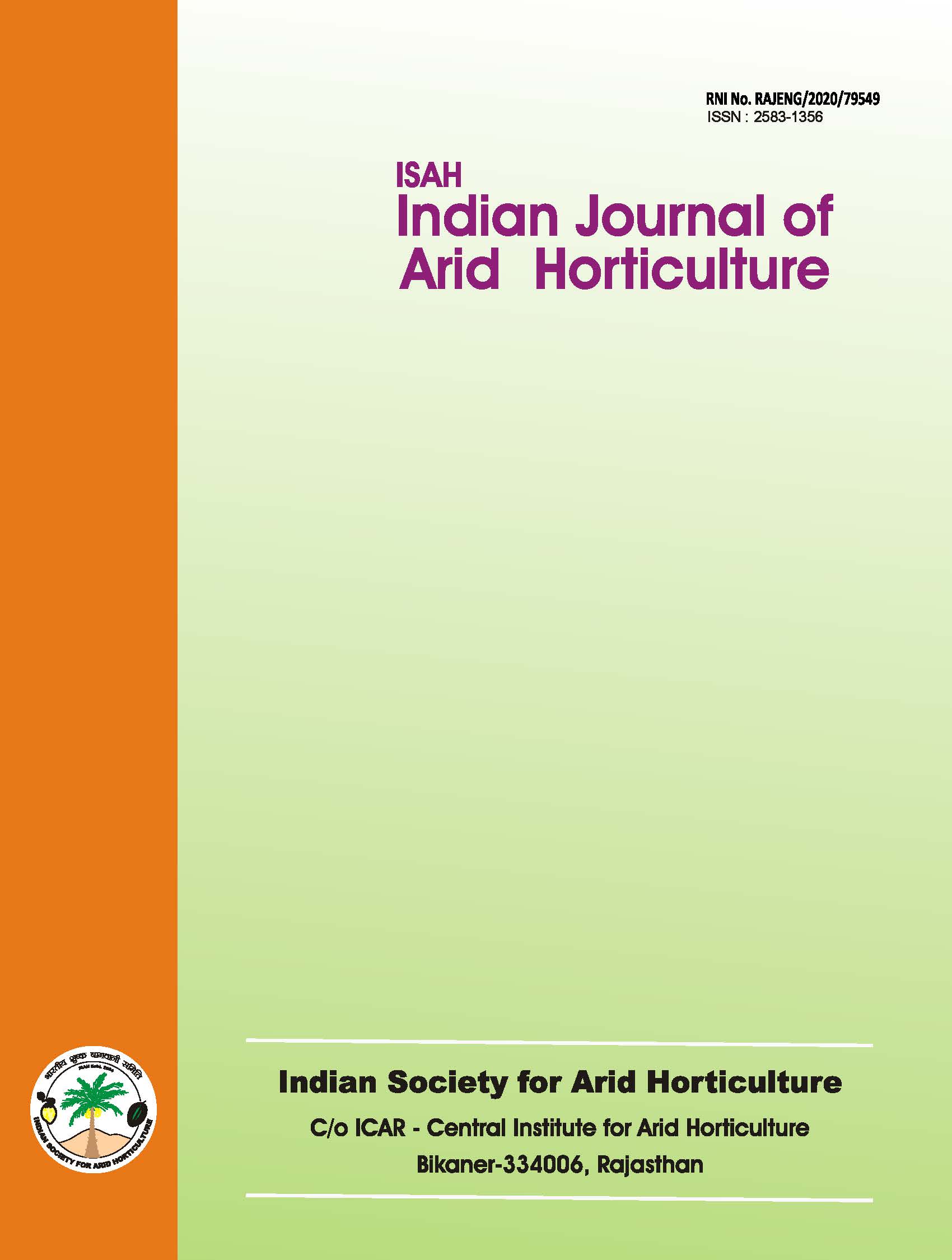Yield, economics and water use of fenugreek (Trigonella foenum-graecum) as influenced by drip irrigation and bio-regulators
Keywords:
Bioregulators, Thiourea, N- acetyl cysteine, Drip irrigation level, Fenugreek, FenugreekHarvest index, Seed yield, WaterAbstract
An experiment was conducted during winter season of 2009-10 and 2010-11 to assess the effect of drip irrigation levels and bioregulators thiourea and N-acetyl cysteine on fenugreek (Trigonella foenum-graecum) at S.K. Rajasthan Agricultural University Farm, Bikaner. Increasing levels of drip irrigation from 0.6 to 1.0 ETc enhanced yield attributes viz., branch/ plant, pods/ plant, pod length, seeds/ pod and test weight. Increased yield attributes thus, enhanced seed yield (1.61 t/ha) and B:C ratio (1.25) with 1.0 ETc. However, highest water use efficiency (5.06 kg/ ha-mm) was recorded with 0.6 ETc. Recommended surface irrigation treatment recorded 1.42 t/ha seed yield using 540 mm of water. Whereas, fenugreek under drip irrigation at 0.6, 0.8 and 1.0 ETc used 278.16, 370.88 and 463.60 mm of water, respectively. Seed treatment of fenugreek before sowing with bio-regulator thiourea (500 ppm solution) for 4 hours recorded higher seed yield of 1.59 t/ha against 1.47 t/ha where no seed treatment was done. Thus, thiourea seed treatment fetched higher water use efficiency (4.29 kg/ha-mm) and B:C ratio (1.25). Further, foliar spray with 20 ppm N-acetyl cysteine at vegetative and seed formation stages recorded highest seed yield of 1.59 t/ha over 10 ppm N-acetyl cysteine spray (1.53 t/ha) or no spray treatment (1.47 t/ha). Increased yield thus enhanced water use efficiency and B:C ratio.

